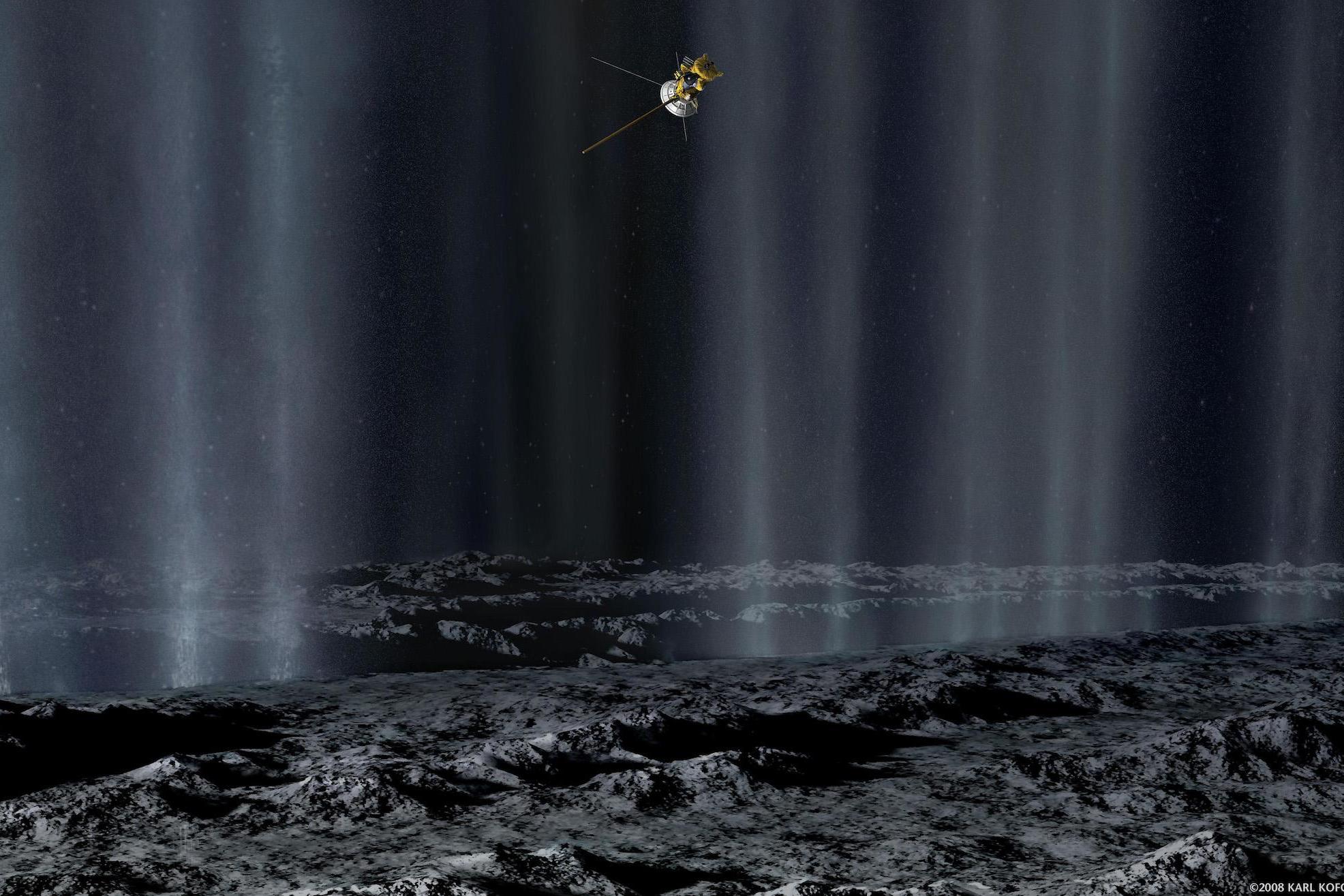Alien life similar to that found on Earth could thrive on one of Saturn’s moons
Experiments reveal that methane-emitting microbes survive in conditions just like those found on the surface of Enceladus

Your support helps us to tell the story
From reproductive rights to climate change to Big Tech, The Independent is on the ground when the story is developing. Whether it's investigating the financials of Elon Musk's pro-Trump PAC or producing our latest documentary, 'The A Word', which shines a light on the American women fighting for reproductive rights, we know how important it is to parse out the facts from the messaging.
At such a critical moment in US history, we need reporters on the ground. Your donation allows us to keep sending journalists to speak to both sides of the story.
The Independent is trusted by Americans across the entire political spectrum. And unlike many other quality news outlets, we choose not to lock Americans out of our reporting and analysis with paywalls. We believe quality journalism should be available to everyone, paid for by those who can afford it.
Your support makes all the difference.A moon orbiting Saturn could support life just like that found on Earth, experiments have revealed.
Enceladus has been identified as one of the most likely places in our solar system to harbour aliens. When the Cassini spacecraft flew over the icy moon, researchers monitoring its progress concluded it contained “food for life”.
Not only does Enceladus have an ocean of water underneath its icy outer crust, it also contains a variety of compounds including methane, carbon dioxide, ammonia and hydrogen that are associated with the presence of microorganisms.
Scientists have speculated that tiny creatures known as methanogenic archaea, which are found on Earth, could be found on Enceladus as well. They could use the carbon dioxide and hydrogen found there for growth, releasing methane as a byproduct.
This prompted University of Vienna microbiologist Dr Simon Rittmann, and a team of researchers, to conduct experiments imitating the conditions found on the distant moon.
Recordings taken by Cassini as it flew through plumes of water being shot from the surface of Enceladus have provided scientists with an idea of the moon’s chemical composition.
By combining experimental data from living microbes with simulations of the moon’s surface, the researchers tried to establish whether or not such conditions could sustain life.
The scientists grew three different microbe varieties in the lab under gas compositions and pressures similar to those found on Enceladus.
They found that one species, known as Methanothermococcus okinawensis, flourished despite the presence of substances like formaldehyde and carbon monoxide, which inhibit the growth of other methanogenic archaea.
This finding suggested that at least some of the methane detected on Enceladus could be produced by the action of extraterrestial life forms similar to these microbes.
In addition, their simulations revealed a geochemical process called low-temperature serpentinisation could provide the hydrogen gas required to support such creatures.
These results were published in the journal Nature Communications.
Researchers said their findings “make it worthwhile to increase efforts in the search for signatures for autotrophic, hydrogenotrophic methanogenic life on Enceladus and beyond”.
Others have already called for a mission specifically to Enceladus to hunt for aliens.
Upon the release of the findings from Cassini, Professor Lewis Dartnell, an astrobiology researcher from the University of Westminster, said on the distant moon there are “some really profound discoveries awaiting us”.
Join our commenting forum
Join thought-provoking conversations, follow other Independent readers and see their replies
Comments